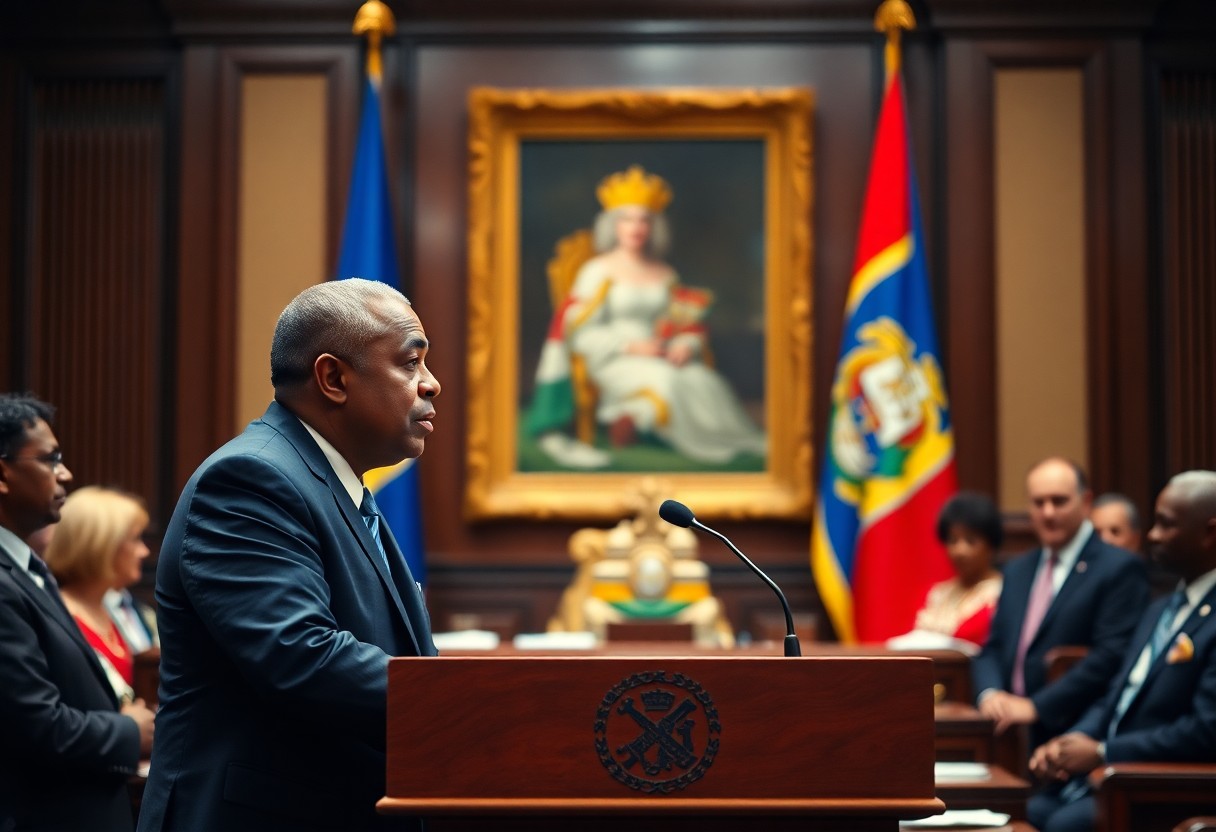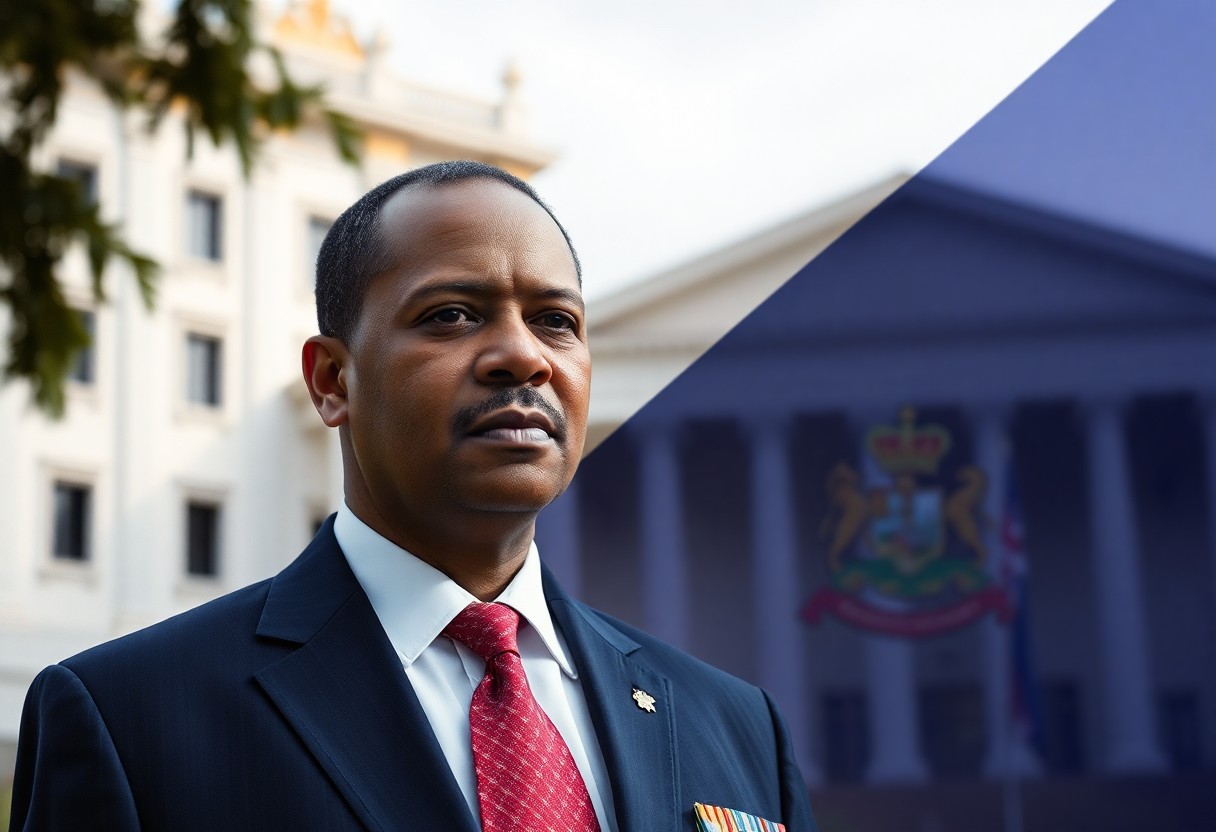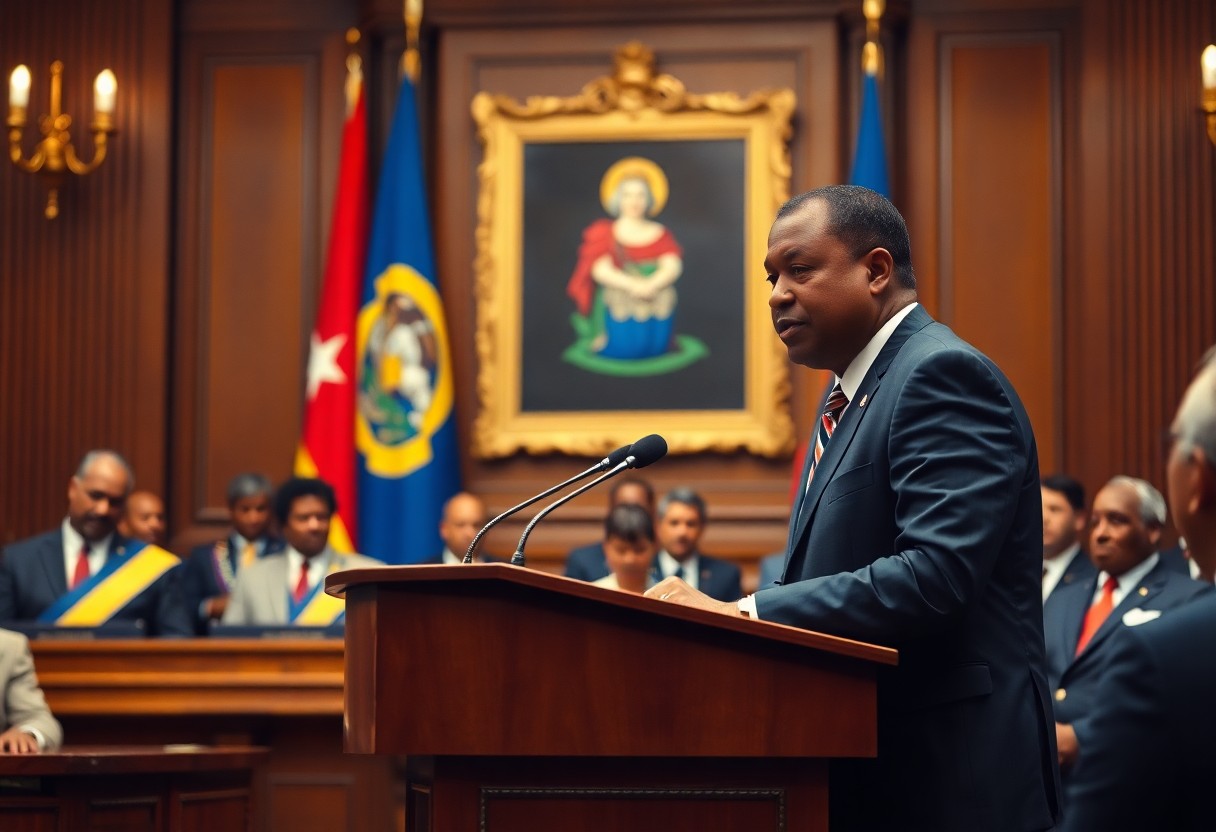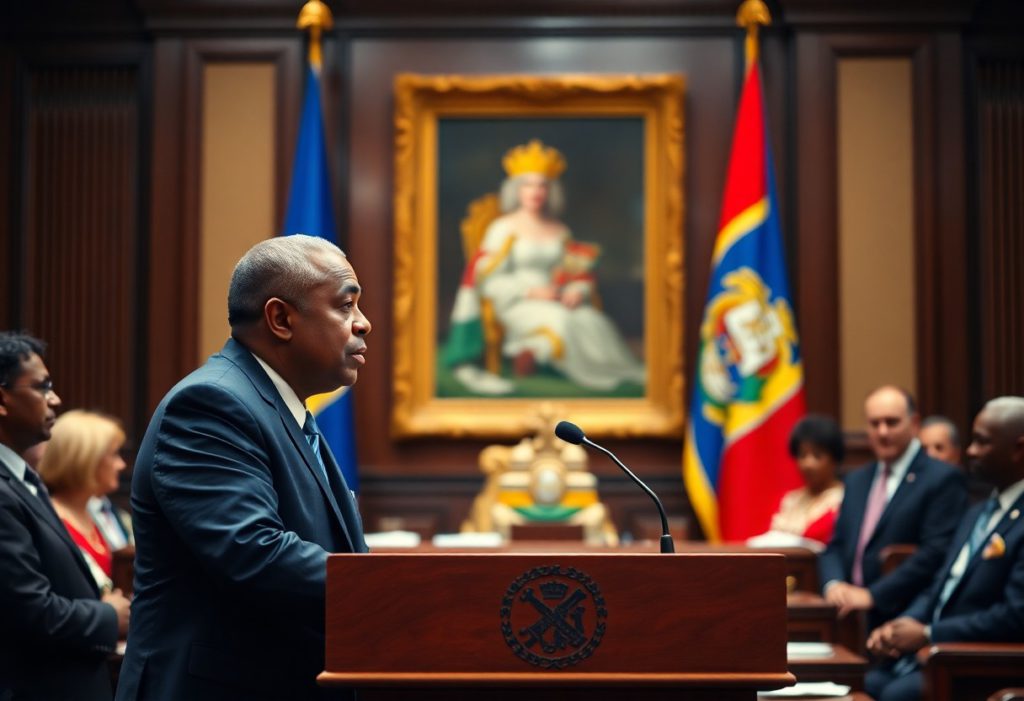Belize presents a richly intricate political landscape that captivates and challenges observers with its complexity. Operating as a parliamentary democracy, Belize functions within a constitutional framework where the influence of elected representatives is pivotal to effective governance. Although Belize remains a Commonwealth realm, with King Charles III serving as the symbolic head of state, the true political power is vested in the Prime Minister and the National Assembly. This distinctive government structure masterfully combines traditional British parliamentary customs with modern democratic practices, producing a unique political atmosphere that mirrors Belize's vibrant historical and cultural heritage.
Exploring Belize's Constitutional Framework for Effective Governance
In Belize, the constitutional framework is foundational for establishing a parliamentary democracy within the Commonwealth system. This structure is meticulously designed to balance democratic governance principles with historical institutional frameworks inherited from British colonialism. The constitution, adopted in 1981 following Belize's hard-fought independence, outlines the fundamental political structure of the nation, clarifying the roles and interactions among various branches of government. This legal framework ensures that governance in Belize is both representative and accountable to its citizens, fostering a political environment that prioritizes civic engagement and responsibility.
Understanding the Monarch's Role as Ceremonial Head of State
Under Belize's constitutional design, the British monarch acts as the ceremonial head of state. Although King Charles III serves as the nominal sovereign, his representative on the ground is a Governor-General, who is appointed based on ministerial advice. The Governor-General's role is largely symbolic, encompassing formal governmental ceremonies and a variety of constitutional duties essential to the nation’s governance. This unique arrangement highlights the historical connections between Belize and the British monarchy while simultaneously allowing local governance to flourish independently.
The Prime Minister: Central Political Leader Shaping Belize's Future
Within Belize’s political framework, the Prime Minister occupies a position of executive authority and political leadership. Typically, this role is held by the leader of the majority party within the House of Representatives. The Prime Minister is responsible for steering national policy, overseeing the operations of government, and representing Belize in international affairs. Their influence is critical in shaping the nation's course and overall political landscape, making their role essential for effective governance.
The constitutional provisions clearly delineate the extensive responsibilities of the Prime Minister in Belize's governance. This role encompasses critical decision-making across diverse governmental areas, emphasizing the significance of strong leadership. The Prime Minister directs the Cabinet, proposes legislative initiatives, manages national economic strategies, and serves as the principal political spokesperson for the nation. Their authority is considerable yet carefully balanced by parliamentary scrutiny and constitutional checks, ensuring a system of governance that values accountability.

Assessing the Prime Minister's Impact on Belize's Governance
The Prime Minister of Belize is not merely the head of government but also possesses substantial political authority and influence. As the leader of the majority party within parliament, they play a pivotal role in guiding national policy, representing Belize internationally, and managing the executive branch of the government. Their position is vital for ensuring effective governance and facilitating national decision-making processes that affect the lives of all Belizeans.
Examining the Extensive Powers Held by the Prime Minister
To fully appreciate Belize's political architecture, it's crucial to recognize that the Prime Minister wields extensive constitutional powers that significantly shape the nation's political landscape. Their authority extends to appointing cabinet ministers, advocating for new legislative measures, directing government policy, and representing Belize in various international settings. This broad influence positions the Prime Minister as a central figure in Belize's governance, endowed with the capacity to mold the future trajectory of the nation.
Understanding the Election Process for the Prime Minister's Role
Typically, candidates for ministerial positions emerge through party-based electoral systems. Potential Prime Ministers are often leaders of their respective political parties who successfully secure parliamentary seats during elections. Their selection hinges on their party’s performance in national elections, reflecting the democratic principles that underpin Belize’s governance structure.
The electoral process in Belize encapsulates complex political dynamics essential for understanding its governance. Candidates must navigate a myriad of challenges, including local constituency elections, party nominations, and national voting trends. Generally, the leader of the party that secures the most parliamentary seats ascends to the role of Prime Minister, underscoring the direct relationship between electoral success and governmental leadership.

Delving into the Bicameral Parliamentary Framework of Belize
Belize operates under a parliamentary democratic system, adopting a Westminster-style governance model influenced by British colonial traditions. The bicameral legislature consists of two chambers: the House of Representatives and the Senate, which together form the principal legislative body responsible for drafting and enacting national laws.
Understanding the House of Representatives' Essential Role
The House of Representatives plays a vital role in ensuring democratic representation, comprising 31 elected members chosen through constituency-based elections. These representatives are directly elected by citizens, serving as the primary democratic voice within Belize’s political framework. Each member champions the interests of a specific geographic area, ensuring that the diverse needs of the populace receive appropriate representation and attention.
Examining the Senate's Responsibilities and Structure
In contrast to the House of Representatives, the Senate serves as an appointed upper chamber with 12 nominated members. These senators are not elected directly; rather, they are appointed by the Governor-General based on recommendations from various political and social sectors. This system introduces a range of perspectives into the legislative process, enriching the discussion and deliberation surrounding national legislation.
This legislative body plays a critical advisory role in Belize’s governance. Senators are typically selected to represent a wide variety of interests, including business, labor, religious organizations, and civil society. Their primary function involves reviewing and potentially amending legislation passed by the House of Representatives, thereby ensuring a comprehensive and balanced approach to lawmaking that considers multiple facets of Belizean society.

Addressing Common Misunderstandings about Belize's Political System
Despite common assumptions, Belize's governmental structure is far more intricate than many might perceive. Widespread misunderstandings about political leadership contribute to confusion regarding the actual nature of governance within the country. It becomes evident that the reality of Belize’s political system deviates significantly from surface-level perceptions, unveiling nuanced layers of power and governance that demand deeper exploration.
Clarifying the Difference Between “President” and “Prime Minister” in Belize
Given that many nations operate under presidential systems, there is a tendency to mistakenly assume that Belize follows a similar model. However, it is vital to comprehend that Belize operates under a parliamentary system, where the Prime Minister serves as the head of government, not a president. This distinction is essential for understanding the political leadership structure, as the Prime Minister is elected from the majority party in parliament, contrasting sharply with a directly elected presidential figure.
Understanding Belize's Complex Political System
Exploring Belize’s political framework unveils the intricate interactions among constitutional monarchy, parliamentary democracy, and local governance. It may be surprising to learn that while the British monarch remains the official head of state, daily governance is conducted by elected officials through a representative democratic system, emphasizing local accountability and responsiveness.
Common misconceptions about Belize's political structure often overlook the delicate balance of power between local institutions. One might find it surprising that the system comprises multiple governance tiers, including a national parliament, local councils, and the influence of the British monarchy through a Governor-General. Grasping this nuanced political landscape necessitates a deeper understanding beyond simplistic categorizations of governmental styles.
Understanding the Dynamics of Governance and Political Relationships in Belize
It is crucial to recognize that Belize operates as a parliamentary democracy within a constitutional monarchy, with the British monarch serving as the ceremonial head of state. Your comprehension of the political landscape is profoundly influenced by the significant power of the Prime Minister, who leads the government and represents the majority party in the National Assembly. Although the political system may appear stable, potential tensions between political parties can create intricate governance challenges, affecting national decision-making processes. Awareness of these dynamics will enhance your understanding of the delicate balance of power in this Central American nation, where historical influences and democratic processes continuously shape its political trajectory.
Tracing the Historical Evolution of Belize's Political Landscape
The political landscape of Belize has emerged from a rich and complex colonial history, where British colonial governance significantly shaped its political structure. You can explore the nation’s political evolution, transitioning from being a British Honduras colony to an independent state in 1981. This transformative period is a critical milestone in understanding Belize's governmental framework. Your exploration will reveal how British parliamentary traditions have fundamentally influenced Belize’s current political system, creating a unique fusion of Westminster-style democracy and local governance that continues to define the country’s political identity to this day.
Summarizing Key Insights on Belize's Political Structure and Governance
In summary, Belize operates as a parliamentary democracy within the Commonwealth realm, where the Prime Minister wields significant executive power. While Queen Elizabeth II historically fulfilled the role of head of state, the current monarch, King Charles III, largely maintains a symbolic presence. Understanding Belize’s governance is centered around the National Assembly, comprised of elected representatives who draft and pass legislation. The Prime Minister, usually the leader of the majority party, effectively governs the country, making crucial decisions that shape Belize’s political landscape. This system successfully balances democratic representation with the principles of constitutional monarchy, ensuring a robust governance framework.
Frequently Asked Questions about Belize's Political System
What is the Core Functionality of Belize's Political System?
Belize operates as a parliamentary democracy within the Commonwealth realm. The Prime Minister serves as the head of government, leading the executive branch. The Parliament consists of two chambers: the House of Representatives (with elected members) and the Senate (composed of appointed members). Although Queen Elizabeth II historically served as the head of state, King Charles III currently fulfills this ceremonial role, represented locally by a Governor-General, ensuring continuity of governance.
Who is the Current Leader of Belize, and How Are National Leaders Chosen?
Prime Minister Johnny Briceño leads Belize, heading the People’s United Party (PUP). National leaders are selected through democratic elections, where citizens cast votes for representatives in the House of Representatives. The political party that secures the majority of seats typically forms the government, and its leader becomes the Prime Minister. Elections are held every five years, fostering ongoing democratic engagement and participation in governance.
What Legislative Powers Does the Belizean Parliament Hold?
The Belizean Parliament possesses significant legislative authority. The House of Representatives is responsible for drafting, debating, and passing laws that shape national policy. Members propose legislation, approve national budgets, and exercise oversight over government operations. The Senate reviews proposed laws and can recommend modifications, ensuring thorough examination and deliberation. Both chambers play essential roles in upholding democratic processes and representing the interests of the Belizean populace.
The Article Who Really Runs Belize? The Prime Minister, Parliament, and Monarchy Explained appeared first on Belize Travel Guide
The Article Who Runs Belize? Insights on the Prime Minister and Government Was Found On https://limitsofstrategy.com



Your exploration of Belize’s political landscape really highlights how the combination of historical influences and modern governance shapes its democratic identity. It’s fascinating to consider how Belize’s unique position within the Commonwealth impacts not just its political structures but also its cultural identity. The role of the Prime Minister and the National Assembly underscores the importance of local representation, yet I wonder how effectively this translates into policy outcomes for ordinary citizens.
You’ve hit on something key there. Belize’s historical ties certainly create a backdrop that influences both politics and culture. The blend of colonial past and modern governance can be a double-edged sword. On one hand, it brings a sense of identity and continuity; on the other, it can complicate how effectively policies are enacted.
You raise some compelling points about Belize’s political and cultural fabric. It’s true that the blend of historical influences and modern governance creates a distinctive democratic identity. The Commonwealth ties can complicate matters, often balancing tradition with the need for contemporary governance.
The relationship between Belize’s historical influences and its modern governance is fascinating, and your observations really highlight the nuances of that dynamic. It’s interesting to think about how the country’s past shapes not only its political landscape but also its cultural identity. You’re right; the Commonwealth connection does inject a layer of complexity into the governance framework. It’s a bit like trying to dance while holding onto a rope—a blend of maintaining the rhythm of tradition while also adapting to the steps demanded by contemporary society.
“To explore further how these dynamics shape Belize’s unique identity, check out this insightful resource!”
https://awesomeappearances.com/FaceTune
You bring up an important aspect of Belize’s identity. The interplay between its historical influences and modern governance shapes much of its current political landscape. It’s fascinating to see how the remnants of colonial rule still ripple through the country’s systems and culture—there’s a real tension between honoring those traditions and adapting to the realities of today’s world.
You’ve really hit the nail on the head about Belize’s political scene, and it’s such a rich topic to chew on. The intertwining of historical influences with the modern-day drama of governance is kind of like a local stew: a little bit of this, a pinch of that, and hopefully a satisfying result in the end—unless someone forgets to add salt, which can happen!
“I’m glad you found the exploration of Belize’s political and cultural dynamics fascinating! If you’re interested in delving deeper into how these elements influence the everyday lives of citizens, check out this insightful resource.”
https://awesomeappearances.com/krystal
You make a really intriguing point about how Belize’s position within the Commonwealth influences both its political structures and cultural identity. It’s like having a foot in two different worlds—balancing colonial legacies with contemporary governance can create some unique challenges and opportunities.
Thank you for your thoughtful insights! If you’re intrigued by the intersection of governance and culture in Belize, you might enjoy diving deeper into the topic through this insightful resource.
https://awesomeappearances.com/emailoctopus
I appreciate your engagement with the topic. The idea of Belize navigating both its colonial past and its modern political landscape is indeed fascinating. It does create a kind of duality that can be both enriching and challenging. The ways in which Belizean culture incorporates elements from its British colonial history alongside a vibrant mix of Indigenous and Afro-Caribbean influences are especially noteworthy.
The duality you mentioned really does create an intriguing lens through which to understand Belizean culture. It’s interesting how the remnants of colonial history can coexist with Indigenous and Afro-Caribbean influences, which adds a rich layer to the national identity.
You’ve touched on some really important aspects of Belize’s political and cultural identity. The blend of historical influences and the structures of modern governance in the country creates a unique tapestry that certainly shapes how citizens engage with their democracy. Belize’s status as a Commonwealth nation does add an interesting layer to this, particularly in terms of how it navigates relations with former colonial powers while fostering a sense of local identity and pride.
You’ve touched on some really important points here. Belize’s political journey is a fascinating blend of its colonial past and the modern demands of its citizens. The influence of being a Commonwealth nation does create this unique dynamic where historical ties and contemporary governance converge. It’s almost like there’s a continual conversation between past and present that shapes how people engage with politics today.
Thank you for your insightful comment! If you’re interested in a deeper dive into Belize’s political dynamics and how they affect everyday life, I invite you to explore more through this link.
https://awesomeappearances.com/eComToolkit